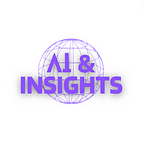Transforming HR with AI: The Future of Talent Acquisition and Management
Artificial intelligence (AI) is revolutionizing the HR industry, transforming the way we recruit, manage, and retain talent. By leveraging AI tools and platforms, HR professionals can streamline their processes, reduce bias, and make data-driven decisions that lead to better outcomes for both the company and its employees.
Let’s explore the ways in which AI is changing the future of HR, and provide practical advice on how companies can implement this technology in their HR processes.
Streamlining Recruitment with AI
One of the most significant ways in which AI is changing the recruitment process is by automating the screening of resumes. By using AI algorithms, HR professionals can scan through hundreds or even thousands of resumes in a matter of seconds, identifying the best candidates for a job based on factors such as skills, experience, and education.
This not only saves time and effort for HR teams but also reduces the risk of human bias in the screening process. For example, AI can eliminate unconscious bias by hiding information such as the candidate’s name, age, and gender from the screening process.
Improving Decision-Making with Data-Driven Insights
AI can be used to analyze employee performance data and provide insights that can inform better decision-making around talent management. For example, AI can identify patterns in employee data to determine which factors contribute to high performance, such as training, mentoring, or incentives.
AI can also help with succession planning by identifying high-potential employees and providing personalized development plans to help them reach their full potential. This not only benefits the employee but also helps the company retain top talent and improve overall performance.
Enhancing Employee Engagement and Retention
AI can help with employee engagement and retention by identifying potential attrition risks and providing recommendations for improving employee satisfaction and retention. For example, AI can analyze employee survey data and identify the key drivers of engagement, providing recommendations for improving the employee experience.
Implementing AI in HR
To implement AI in HR, companies must first identify the areas of their HR processes that could benefit from automation or data-driven decision-making. HR professionals should work closely with AI experts to select the right tools and platforms for their organization, ensuring that they align with the company’s goals and values.
It’s also essential to strike the right balance between automation and human interaction. While AI can automate many of the routine tasks involved in recruitment and talent management, it’s important to remember that human judgment is still critical in many areas, such as making hiring decisions or providing feedback to employees.
Finally, companies must measure the success of their AI implementations in HR, tracking key metrics such as time to hire, employee engagement, and retention rates. This data can be used to make ongoing improvements to the HR processes, ensuring that the company continues to reap the benefits of AI in the years to come.
AI is transforming the HR industry, providing HR professionals with powerful tools for streamlining recruitment, improving decision-making, and enhancing employee engagement and retention. By implementing AI in their HR processes, companies can save time and effort, reduce bias, and make data-driven decisions that lead to better outcomes for both the company and its employees. As AI continues to evolve, it’s clear that the future of HR will be shaped by this transformative technology.
